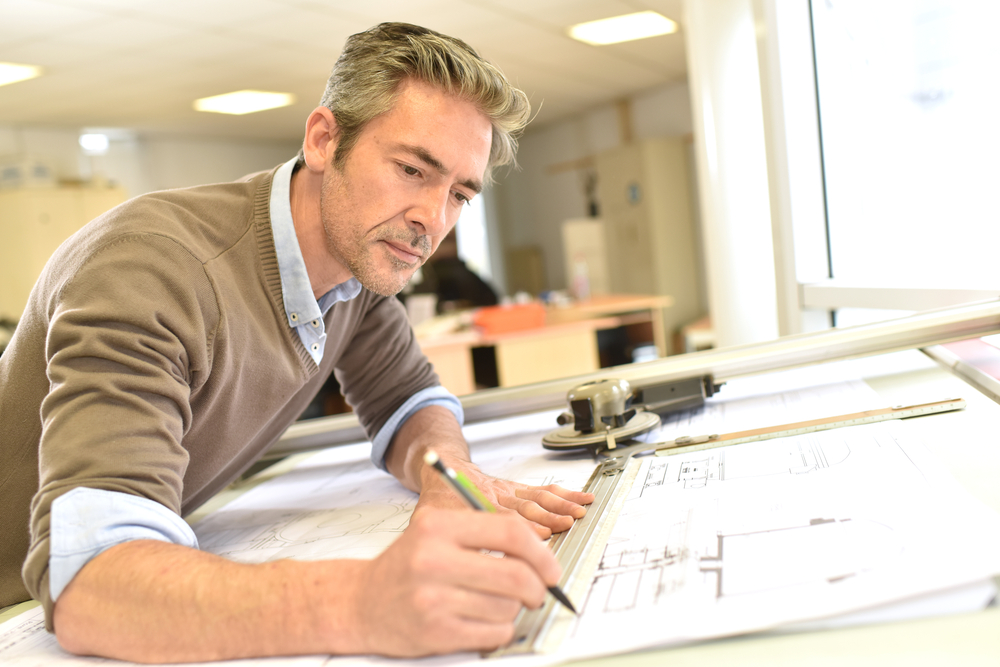Discover the Crucial Abilities and Top Qualities Every Architect Should Possess
As an engineer, you know that success in your field exceeds simply technical skills. It has to do with blending imagination with usefulness, fostering collaboration, and handling tasks properly. Each quality plays a crucial duty in your capacity to develop rooms that influence and operate well. Yet what are the particular skills that can truly set you apart? Let's explore the important attributes every Architect should cultivate to grow in this ever-evolving career.
Creative Thinking and Technology
Creative thinking and development are at the heart of style, driving the design of areas that motivate and operate seamlessly. As a designer, you'll need to assume outside package, pushing borders to develop distinct options for your customers. You'll constantly check out brand-new materials, techniques, and technologies to improve your layouts. Embracing advancement implies remaining ahead of fads while being adaptable to change.
You'll likewise attract inspiration from numerous resources-- nature, art, and also everyday life can trigger fresh concepts. This capability to blend imagination with functionality enables you to resolve complex troubles, guaranteeing your styles fulfill both practical and visual demands.
Solid Interaction Abilities
While developing exceptional rooms calls for creativity, strong interaction abilities are just as crucial for architects. You require to convey your concepts plainly to clients, service providers, and staff member. Listening is equally as important; recognizing your client's vision helps you develop styles that truly satisfy their requirements.
You'll typically have to describe complex ideas in such a way that's simple to grasp, whether you're providing a proposition or reviewing materials. Reliable interaction promotes partnership, making sure every person is on the very same web page throughout the project.
Building partnerships is important, also. When you develop trust and rapport, customers are most likely to share their concerns and responses, bring about better results.
Finally, do not undervalue the power of body language and visual aids. They can improve your message and make your discussions extra engaging. Solid interaction skills not only raise your designs however likewise enhance your specialist partnerships in the building world.
Technical Effectiveness in Style Software
As you browse the ever-evolving globe of style, grasping style software program comes to be vital for converting your innovative ideas into substantial strategies. Acquainting on your own with programs like AutoCAD, Revit, and SketchUp will certainly not only enhance your style capabilities however likewise streamline your operations. These tools permit you to develop thorough illustrations, 3D models, and even simulations that can help you imagine and offer your ideas better.
Being efficient in these software program applications additionally boosts your partnership with contractors and designers, as every person can work from the exact same digital foundation. In addition, your ability to adjust to new modern technologies will maintain you competitive in the area. Consistently updating your skills and discovering new features can set you besides your peers, guaranteeing your layouts are cutting-edge and accurate. Ultimately, technical proficiency in layout software application is a keystone of effective architecture, helping you bring your visions to life.
Comprehending of Engineering Principles

Recognizing design concepts additionally allows you to anticipate possible difficulties early in the design procedure. When you know just how different products act under different problems, you can make enlightened choices that boost your designs. Your styles must not only be aesthetically pleasing yet also practical and sustainable.
Furthermore, a solid grasp of design principles allows you to innovate within restraints. You can push imaginative boundaries while still sticking to safety requirements. Inevitably, this understanding enriches your architectural practice and establishes you apart in an affordable field.
Task Management Abilities
Efficient task monitoring capacities are important for designers, allowing you to look after all elements of a project from conception to conclusion. You'll require to coordinate with various stakeholders, consisting of service providers, engineers, and customers, making sure everybody's on the very same web page. Establishing clear objectives, timelines, and budget plans is essential; it assists you keep the job on the right track and within range.
As a designer, you ought to also be proficient in danger administration, recognizing possible problems prior to they rise. Solid interaction abilities are necessary, allowing you to express your vision and motivate your team. You'll gain from being arranged and detail-oriented, as this aids simplify procedures and stay clear of pricey hold-ups.
In addition, flexibility is crucial; jobs frequently develop, and being flexible allows you to respond effectively to adjustments. Inevitably, your project administration skills can significantly affect the success of your architectural endeavors, guaranteeing you provide top quality look what i found outcomes on schedule and within budget.
Attention to Detail
While taking care of jobs is vital, your attention to information can make a considerable difference in the quality of your job. Every line you draw, every material you pick, and every small specification you note adds to the total success of a project. You need to be careful, making sure that your designs not only fulfill visual requirements but additionally stick to building codes and policies.
Missing out on also a tiny information can result in pricey revisions or safety Full Report and security issues down the line. By growing an eager eye for detail, you improve your capacity to find possible issues prior to they escalate. This caution not only conserves you time and resources however also constructs your credibility as a reliable Architect. Keep in mind, it's frequently the tiniest information that raise a task from excellent to remarkable. So, embrace this skill, and allow it lead your style process, guaranteeing that your vision is carried out flawlessly.
Flexibility and Problem-Solving Skills
As a designer, you'll usually deal with unanticipated adjustments in style and task demands. Your capacity to welcome these changes and locate cutting-edge remedies is crucial for success. Remaining versatile in your technique not only boosts your analytic abilities however also keeps your projects on course.
Embracing Modification in Design
Welcoming adjustment in design is important for architects, specifically when guiding advancing client needs and emerging technologies. You need to cultivate adaptability, as projects frequently move direction based on brand-new insights or constraints. Being open to transform allows you to discover innovative techniques and create solutions that resonate with your customers.
When encountered with challenges, your analytical skills enter into play. You'll usually need to rethink ideas and adjust strategies on the fly, making certain that the final end result lines up with the customer's vision while satisfying safety and internet security and regulatory criteria. By being resourceful and adaptable, you not only boost your designs but additionally develop trust with your customers, verifying that you can navigate the complexities of modern-day design efficiently.
Ingenious Solutions to Difficulties

Versatility in Task Monitoring
While steering the complexities of job administration, versatility becomes a necessary asset for designers. You'll often encounter unanticipated challenges, from design adjustments to budget restraints, calling for fast thinking and adaptability. Embracing change permits you to pivot your methods and discover ingenious remedies, making sure project success.
Solid problem-solving abilities are essential; they enable you to analyze circumstances, weigh options, and apply efficient options on the fly. When dealing with diverse groups, being open to comments and different concepts fosters partnership and sparks creative thinking.
Often Asked Questions
What Educational History Is Called For to End Up Being a Designer?
To become an architect, you'll require at the very least a specialist degree in style, usually a Bachelor's or Master's. Obtaining and completing an internship licensure via tests is vital for your career innovation.
Exactly How Crucial Is Networking in the Design Field?
Networking's important in design. It helps you build connections, find work chances, and gain insights from seasoned professionals. By attaching with others, you boost your occupation leads and remain upgraded on industry patterns and growths.
What Are the Common Career Paths for Architects?
Typical profession paths for engineers consist of style functions in companies, task management, metropolitan preparation, and specialized areas like sustainable design. Architect. You could also check out mentor or consulting, relying on your experiences and passions
Just How Can Engineers Stay Upgraded With Sector Trends?
To remain upgraded with industry patterns, you ought to routinely participate in conferences, join professional organizations, subscribe to pertinent magazines, and involve with on-line discussion forums. Connecting with peers additionally aids you obtain understandings into arising advancements in design.
What Role Does Sustainability Play in Modern Design?
Sustainability shapes modern design by highlighting power efficiency, source preservation, and environmentally friendly materials. You'll produce areas that lessen environmental impact, improve passenger wellness, and respond to climate difficulties, making your designs more impactful and pertinent.
While developing exceptional areas calls for creative thinking, strong communication abilities are simply as essential for engineers. Strong interaction skills not just raise your designs but additionally enhance your professional partnerships in the architectural world.
Efficiency in design software application lays the foundation for a deeper understanding of design principles, which is essential for engineers.As an architect, you'll often encounter unexpected adjustments in style and project needs.Embracing adjustment in style is essential for engineers, especially when guiding developing customer needs and arising technologies.